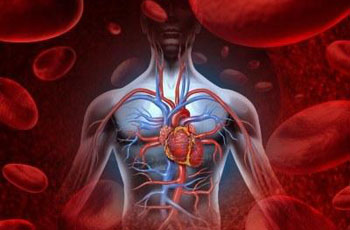 Circulatory system – Transports blood to all parts of the body
The human circulatory system functions to transport blood and oxygen from the lungs to the various tissues of the body.
Circulatory system – Transports blood to all parts of the body
The human circulatory system functions to transport blood and oxygen from the lungs to the various tissues of the body. The human circulatory system functions to transport blood and oxygen from the lungs to the various tissues of the body.
The heart pumps the blood throughout the body. The lymphatic system is an extension of the human circulatory system that includes cell– mediated and antibody–mediated immune systems. The components of the human circulatory system include the heart, blood, red and white blood cells, platelets and the lymphatic system.
As heart plays a major role in circulatory system, it is also referred as cardiovascular system. The cardiovascular system transports blood to almost all of the body's tissues. The blood delivers essential nutrients and oxygen and removes wastes and carbon dioxide to be processed or removed from the body. Hormones are transported throughout the body via the blood's liquid plasma. The cardiovascular system protects the body through its white blood cells. White blood cells clean up cellular debris and fight pathogens that have entered the body. Blood also carries antibodies that provide specific immunity to pathogens.